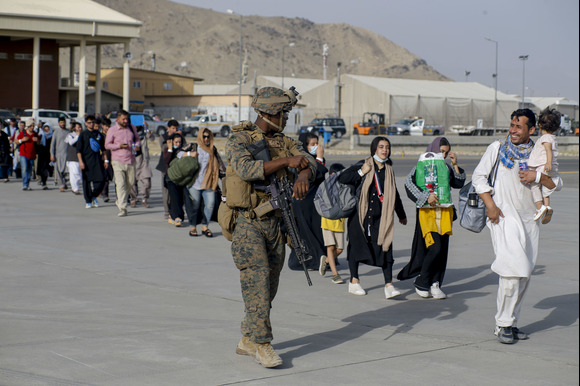Millions of Afghan refugees and migrants in Iran are facing the threat of arrest or deportation as a government-set deadline for voluntary departure reaches its end. The looming Sunday deadline has heightened public tensions following a recent 12-day conflict between Iran and Israel, which saw the United States join in air strikes targeting Iranian uranium-enrichment sites.
Humanitarian groups have expressed alarm that mass expulsions could further destabilise Afghanistan, a country already grappling with extreme poverty and the consequences of prolonged conflict. Iran currently hosts an estimated 4 million Afghans, many of whom have lived in the country for decades and have little or no connection to their ancestral homeland.
Tehran initiated a campaign in 2023 to expel foreigners deemed to be living in Iran without legal status. In March of this year, authorities announced that Afghans lacking the right to remain must leave voluntarily by the beginning of July or face forced deportation.
Since that announcement, more than 700,000 Afghans have reportedly left Iran, with over 230,000 departures recorded in June alone, according to the United Nations International Organization for Migration (IOM). Still, hundreds of thousands remain vulnerable to expulsion. The Iranian government, however, has rejected claims that Afghans are being specifically targeted, stating that the policy is part of a broader enforcement of immigration laws.
For many Afghans in Iran, the policy has been devastating. Batoul Akbari, a restaurant owner in Tehran, described the growing “anti-Afghan sentiment” as painful and unjust. “It’s heartbreaking to see people sent away from the only home they have ever known,” she told Al Jazeera. “Being born in Iran gives us the feeling of having two homelands. Our parents are from Afghanistan, but this is what we’ve always known as home.”
Mohammad Nasim Mazaheri, a university student whose family was recently forced to leave, echoed Akbari’s sentiments: “The deportations have torn families apart.”
The UNHCR reported that, during the period of conflict with Israel, Iran deported over 30,000 Afghans per day on average — a stark increase from the prior daily rate of about 2,000. By the end of June, the agency said, over 1.2 million Afghans had returned home this year, with more than half of them coming from Iran since the March deadline was announced.
Iranian government spokesperson Fatemeh Mohajerani defended the policy, saying, “We have always striven to be good hosts, but national security is a priority, and naturally, illegal nationals must return.”
At border crossings, aid workers describe scenes of desperation and fatigue. “They are coming in buses, and sometimes, five buses arrive at one time with families and others,” said Arafat Jamal, UNHCR’s representative in Afghanistan. “The people are let out of the bus, and they are simply bewildered, disoriented, and tired and hungry as well.”
Jamal noted that while some of the returns may be voluntary, a significant number are clearly forced removals. “This has been exacerbated by the war,” he said, “but it has been part of an underlying trend we have observed for months.”
Reporting from Tehran, Al Jazeera’s Resul Serdar said Afghans are increasingly being scapegoated for economic woes, resource shortages, and social challenges. “These accusations have been inflamed by political rhetoric and online campaigns, particularly in the wake of the Israel-Iran conflict,” Serdar said. “There are even allegations that Israel has used Afghans as spies — claims that have only fuelled resentment.”
The situation highlights the growing vulnerability of displaced populations in geopolitically tense environments, with Afghan families once again caught in the crossfire of regional and domestic upheaval.






